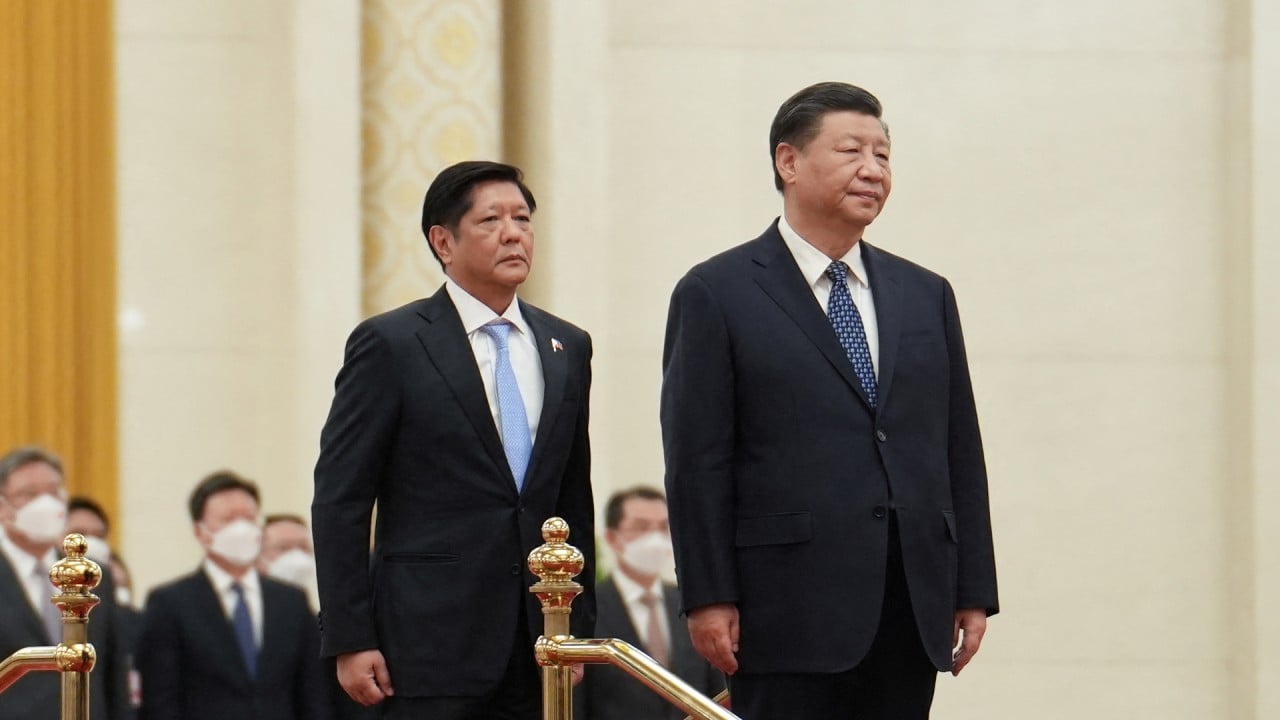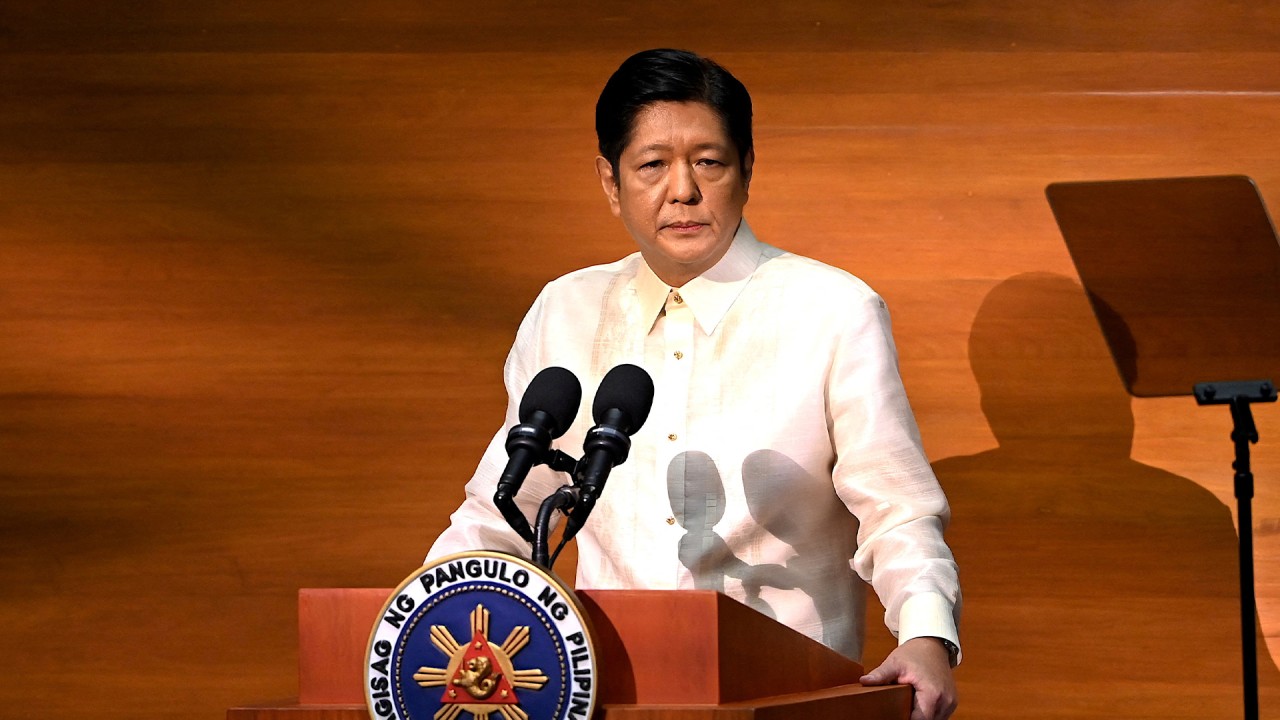
China, Philippines to resume oil and gas talks as Beijing flexes ‘durian diplomacy’
- China and the Philippines signed 14 deals in Beijing this week, spanning infrastructure investment to durian imports
- The two sides also agreed to resume discussions on oil and gas development in the resource-rich South China Sea
China and the Philippines have agreed to enhance bilateral trade and resume discussions on oil and gas development, as both sides eye closer economic cooperation while easing tension in the South China Sea.
Despite unresolved maritime disputes, bilateral trade has been growing for more than a decade, but mostly driven by Chinese exports.
China is the Philippines largest trade partner and in the first 11 months of 2022 its exports totalled US$59.2 billion, increasing by 14.5 per cent compared to the same period the previous year, according to data from China Customs.
China’s imports from the Philippines were worth US$21.2 billion from January to November, dropping by 6.1 per cent year on year.
“The potential for expanding bilateral trade between China and the Philippines is very large,” said Wang Qin, a professor at the Centre for Southeast Asian Studies at Xiamen University.
Electronics parts and components, industrial products such as iron and steel, machinery, minerals and agri-food goods are the biggest areas of bilateral trade, China customs data showed.
According to the statement, China will now allow the import of fresh durian from the Philippines, giving the nation the same market access as Thailand and Vietnam.
It’s about diplomacy and politics, not trade
“Philippine durian has its cost advantage,” Wang said. “Through the preferential tariffs and convenient customs clearance under the [Regional Comprehensive Economic Partnership], it may become another fruit product with export advantages for the Philippines to export to China.”
Wen-Chih Chao, a professor at the Institute of Strategic and International Affairs Studies at Taiwan’s National Chung Cheng University, said Beijing was using Philippine agricultural imports as a tool for improving its relationship with its neighbour.
“The purchase of Philippine durian is one part of China’s durian diplomacy towards Southeast Asian countries,” he said. “It’s about diplomacy and politics, not trade.”
At the height of maritime disputes between Beijing and Manila in 2012, China banned the import of several fruits including banana, mangoes and pineapples. The boycotts were lifted in 2016 when Rodrigo Duterte became president and fostered a closer relationship with China.
Herman Kraft, political science professor at University of the Philippines Diliman, said some of the agreements were left over from the Duterte administration.
Marcos Jnr, meanwhile, has moved to restore more traditional Philippine foreign policy relationships, including ties with the United States.
“So the question becomes what should we expect outcomes to be,” Kraft said.
“That’s something China might actually be concerned about when considering how much to help the Philippines with its agriculture.”
The joint statement said the two sides had also agreed to resume discussions on oil and gas development.
The South China Sea is rich with oil and natural gas reserves, but a flashpoint for conflict between Beijing and Manila because of overlapping claims of sovereignty.
Cooperation on oil and gas exploitation was needed to avoid conflicts, Chao said.
“But whether it will ease bilateral tensions in the South China Sea will largely depend on how to implement cooperation on oil and gas in the future and it is the focus of observation,” he said.
Aaron Rabena, research fellow at the Asia-Pacific Pathways to Progress Foundation in Metro Manila, said the biggest issue on the cooperation between the two countries would be undersea prospecting for oil or gas near the Reed Bank, a disputed islet in the South China Sea.
How far China goes will depend on the Philippines’ relations with other countries, especially the US
Andrea Chloe Wong, PhD student in political science at the University of Canterbury in New Zealand, said the major challenge for the Philippine government is to coordinate the different privately owned petroleum service contractors in various areas that will deal with China and the state-owned China National Offshore Oil Corporation.
“Though the [memorandum of understanding] does not diminish the relevance of the Philippines’ arbitration victory, its political uncertainties and possible backlash – especially on the Philippine side – during joint exploration cannot be disregarded and may further cause potential rift, which both parties should be wary of,” said the former senior researcher at the Foreign Service Institute Philippines.
Rabena said most Filipinos he knows feel good about the talks between Xi and Marcos Jnr, but worry about eventual security risks if the two sides grow closer economically.
“How far China goes will depend on the Philippines’ relations with other countries, especially the US,” Rabena said.





